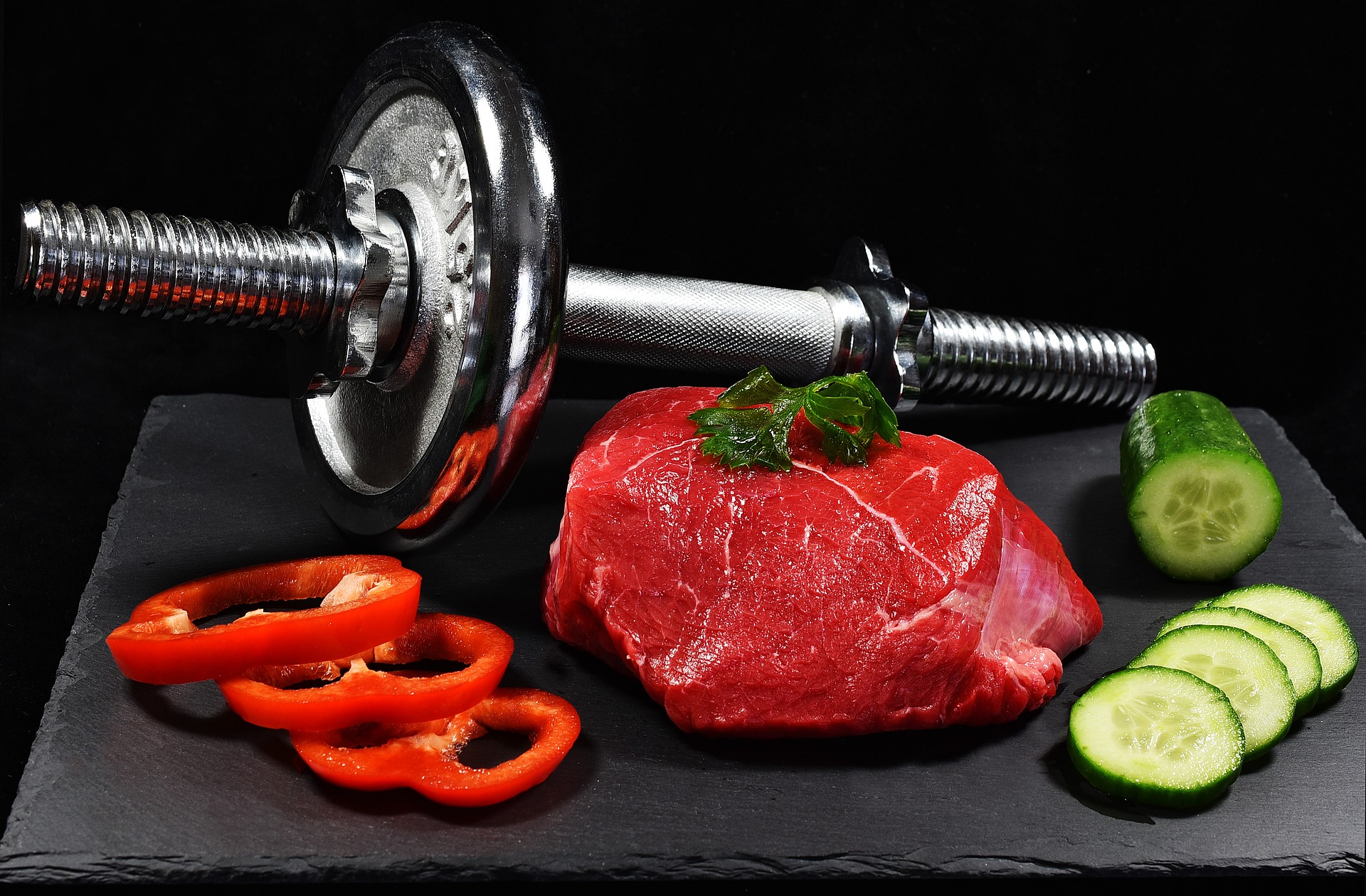Well-Being: Fitness & Diet
MUSCLE RECOVERY FOODS
By A.A. (staff writer) , published on September 23, 2021

Medicine Telehealth Health muscle recovery foods foods for muscle recovery
The intensity of workout and sports injury pain differ considerably, you're probably anxious to get back to your normal routine as soon as possible. Of course, the simplest method to do this is to schedule an appointment with a certified orthopedic doctor. Moreover, they'll give you a definitive diagnosis and start treating you. They will, however, assist you in learning about the proper stretches, foods, and exercises to help you to recover faster.
Your nutritionist and orthopedic also emphasized the importance of food for muscle recovery and muscle injury. Your diet can streamline the process and minimize the recovery time. So, along with stretching exercises, a proper diet also helps in achieving quick muscle recovery1.
Foods for Muscle Recovery
Cottage cheese
Whey protein is famous for replenishing muscle rapidly after a workout and casein protein provides muscle recovery even when you sleep because it is a slow-acting protein. These two proteins are abundantly present in cottage cheese. That's why cottage cheese is an excellent food that can be taken before and after a workout. Many people consume it with wholegrain toast or with fresh fruit.
Bananas
Fiber, carbohydrates, vitamin C, potassium, vitamin B6, and magnesium all are abundantly present in Bananas. They are the favorite food of many people as it serves as a quick energy source with essential minerals and vitamins. Because of the high potassium content, bananas are also known to help alleviate exercise-related muscular cramps and soreness.
What is the optimum time to consume a banana? There are many options all day, whether before or after a workout. Make a smoothie with a banana and some protein for a healthy snack.
Turmeric
Turmeric is a no-brainer muscle recovery food because of its anti-inflammatory qualities. Even better, turmeric can be used in a variety of dishes. Turmeric can be used to make golden milk or sprinkled on roast vegetables. It can also be added to curries, soups, rice, juices, and smoothie bowls.
Nuts and seeds
Nuts and seeds are rich sources of omega-3 fatty acids that are important for joint and bone health and also fight inflammation. They also boost muscle recovery as they are a rich source of protein as well. Among the most commonly consumed nuts are hazelnuts, flax seeds, chia seeds, walnuts, almonds, and pecans. They can be added to the smoothies, or you can sprinkle them on a bowl of yogurt or oatmeal2.
Oatmeal
Oatmeal is great since it's quick and simple to cook when you're in a hurry. According to a 2016 research published in the journal Circulation, it can also contribute to a longer life. Researchers from Harvard University's T.H. Chan School of Public Health discovered that those who ate 33 grams of whole grains per day—roughly the same amount as a bowl of oatmeal—had a 9 % lower risk of premature mortality than those who didn't consume any whole grains at all.
Chia seeds
Chia seeds contain 3 grams of complete protein that shows that they have all nine important amino acids. Chia seeds also offer essential minerals, such as iron, calcium, and magnesium, as well as anti-inflammatory fat, which assists with workout recovery.
Are you wondering how to utilize them properly? You can mix them with Greek yogurt or a smoothie. You can also prepare chia seed pudding if you have time ahead of time. All you need is a splash of coconut milk and a sprinkling of fresh fruit to decorate it.
Green tea
Individuals who consume 500mg of green tea extract decreased indicators of muscle damage induced by exercise, according to research published in Physiology and Behavior in October 2018. It is high in antioxidants and polyphenols, which help to regulate oxidative damage that occurs during training and in everyday life3.
Eggs
According to the findings of a 2017 study, eating whole eggs after strength training increased protein synthesis more than eating egg whites with the same protein content. The nutrients in the yolk, according to the experts, helped to activate the muscles more efficiently.
Omega-3 fatty acids
Taking omega-3 fatty acids, as per findings from Washington University School of Medicine, aids in the biosynthesis of muscle proteins and increases the number of muscle cells in healthy young and middle-aged individuals. Omega-3 fatty acids are abundant in fatty fish, such as salmon. Tuna is also high in fatty acids, with 41.6 grams of protein and 5.4 grams of fat per 6 ounces (oz) of tuna.
Water
Before, during, and after an exercise, it's essential to drink enough water. Keep yourself hydrated and ensure that you get the most out of your workout. Sweating causes the body to lose water and electrolytes, so drinking water before, during, and after an exercise helps with performance and recuperation. The quantity of water required by each individual differs based on the sort of exercise, how much they sweat, how thirsty they are, and other factors4.
References
- 6 Best Foods to Eat While Recovering From Sports Injuries. [Internet]. [Cited 2021 July 10]; Available from https://centralorthopedicgroup.com/6-best-foods-eat-recovering-sports-injuries/
- Top 10 Foods For Muscle Recovery & Repair. [Internet]. [Cited 2021 July 10]; Available from https://www.sweat.com/blogs/nutrition/foods-for-muscle-recovery
- Is White Rice Healthy? Here's What a Nutritionist Says. [Internet]. [Cited 2021 July 10]; Available from https://www.health.com/nutrition/is-white-rice-healthy
- What should you eat after working out? [Internet]. [Cited 2021 July 10]; Available from https://www.medicalnewstoday.com/articles/322692#importance-of-the-post-workout-snack
Find articles related to: Medicine Telehealth Health muscle recovery foods foods for muscle recovery
More articles about Well-Being: Fitness & Diet
Back to the Health Tips Index




